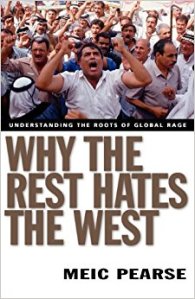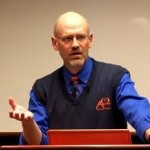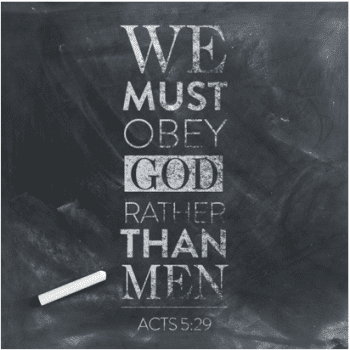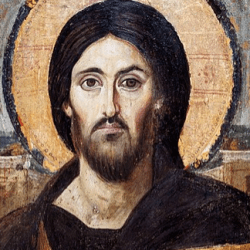
This past week, responding to the President’s well-received speech in Poland, the Atlantic wrote:
“The West is a racial and religious term. To be considered Western, a country must be largely Christian and largely white… He’s not speaking as the president of the entire United States. He’s speaking as the head of a tribe.”
Well, excuse me (Rod Dreher’s response to), but I had always assumed people who talk like our President did in Poland not only tend to think that “democracy and capitalism [are] not uniquely ‘Western,’” but that the same holds true for our Christian heritage. In other words, it is not only a critical part of who we are as a people, but it is needed by the whole world.[i]
If you agree with me about this, you might like what follows.
I posted the Atlantic article on a Facebook group I’m on, and one man made the popular comment that: “The ‘West’ is that part of the world influenced by Greek and Roman thought, with Christianity added to it. We adhere to Western philosophy.” I think that is a pretty good way of looking at it, and when it comes to “Greek and Roman thought,” I note that many of the elites in the West look to the famous philosophers from these cultures – Socrates, Plato, Aristotle, Epicurus, Seneca, Cicero, Lucretius, etc. – as powerful guiding lights.
At the same time, the most important part of our Western heritage, by far, is the Christian faith. The historical account the Bible provides is in fact What Athens Needs From Jerusalem.

As the caption in the picture above demonstrates, it is for this reason I don’t have trouble downgrading — no, not eliminating — the importance of the world’s great philosophers for us. Years ago, noting that the Stanford Encyclopedia of Philosophy said…
“The concept of history plays a fundamental role in human thought. It invokes notions of human agency, change, the role of material circumstances in human affairs, and the putative meaning of historical events. It raises the possibility of “learning from history.” And it suggests the possibility of better understanding ourselves in the present, by understanding the forces, choices, and circumstances that brought us to our current situation. It is therefore unsurprising that philosophers have sometimes turned their attention to efforts to examine history itself and the nature of historical knowledge…”
“What is surprising though is that no serious philosopher seems to have really seen these matters as [highly] significant when it comes to doing philosophy until about the 18th century, or arguably, a bit later (particularly with Hegel) – when the Enlightenment (and Romanticism after it) ran with the Christian idea that man was not subject to the blind forces of fate.”
A wise interlocutor, however, pushed back:
“Just because [someone like Plato] didn’t do philosophy of history, doesn’t mean he didn’t care about history. Socrates chooses to drink the hemlock because philosophical considerations trump historical ones when it comes to doing the right thing. But history is the only way anyone knows that he did in fact do the right thing. Or what he said in any of his dialogues.” (italics mine)
This showed me that I needed to further explain my original What Athens Needs From Jerusalem post. I think it is neither true nor wise to say that “philosophical considerations trump historical ones when it comes to doing the right thing.”

What do I mean? I am not saying that the philosophers thought we could learn nothing from individuals in history or that historical facts are unimportant. Indeed, Plato wants to show us how to live by Socrates’ example which he believes personifies the highest wisdom.
We would be wrong, though, to think that Plato – or even Aristotle, who prepared the histories of 200 political regimes in order to assist politicians in his present – is saying that a particular narrative about “what happened” in the past regarding a particular people in a particular nation in a particular time… following up on the heels of a particular account of the creation of the world… should have absolute controlling significance over how every human being understands meaning in life or the “how should we then live?” (2 Peter 3:11) question (the “then” is very significant!). That such an account demands to be examined and taken seriously (note very carefully what the Apostle Paul says in Athens in Acts 17).

I think my saying that that is indisputable, and in this sense philosophy as conceived in the world could not be further apart from revealed religion – not to mention any historical tradition human beings might be inclined to value and uphold in the face of seemingly contradictory views put forth as rational and scientific! As Martin Luther put it in his antinomian disputations, “after Christ’s coming, this sin of unbelief and ignorance of Christ has been made known throughout the entire world by the public ministry…” (p. 111, Solus Decalogus Est Aeternus)
This is what I am saying (though perhaps quite clumsily indeed) in my What Athens Needs From Jerusalem post above. Christians in general, and Lutheran-Christians in particular – and remember, I also count myself as a “liberal Christian nationalist”! (consider this post part II of why I am that) – are the ultimate “historical conservatives”. In my mind, it is just crazy that so many Americans, for example, think that they can “champion the liberty and rights of the individual stripped of corporate and historical identify” (Gottfried, Search for Historical Meaning, 116) – particularly *Christian identity*!
Many may try to deny it, but this Christian identity — based on the Bible as God’s word and history — has always been part and parcel of “the West,” even with weakening Christian influence in light of things like the Thirty Years War, the Enlightenment, and the French and American revolutions. As such, in America the Englishman John Locke had a strong influence on the course of our nation as he presented a political philosophy which derived not only from Christianity but from materialism (atomism)[ii].

What these men say actually does not contradict. We, contra Socrates, can know what is right and yet get in the habit of not practicing it. In fact, we both suppress the universal truths we know (see Romans 1) and often find ourselves not questioning many of the assumptions and practices – good and bad – of our heritage. Taking several steps back now, I don’t think what Hayek points out is incomprehensible at all. To me it all seems rather obvious: All of this goodness comes to us in a certain way – not as much through “principals” or “propositions” – but through the Person of Christ, His people, and those influenced and encouraged by them. Other influences are there to be sure, but in the best case scenarios they have been curtailed by Christianity and/or culturally appropriated (gasp!) and refined (“redeemed” in a sense).
And when I talk about Christianity, I am talking history and not philosophy. As Thomas Molnar once asked “Why is it that Marxists, unlike conservatives, can inspire students with their vision of history”? It is because they actually talk about a story involving real persons, even if that story is very inaccurate. As human beings we are built for stories but we really are built for The Story that we all need. The Story of the True Hero who rescues us and embodies what we are to be… the True Myth that Became Fact, as Lewis said.

We Christians are neither “historicists” in the mold of Hegel who merely assert “the indispensability of historical consciousness to the Western understanding of man” (Gottfried, Search for Historical Meaning, 116) nor merely those who assert confidently that any person or group, regardless of their historical circumstances (and therefore regardless of their particular historical prejudices), can, just as easily, through their own rational means, “apprehend the Good and the Just,” as Leo Strauss (and perhaps Plato?) may have put it. This is not because they have no knowledge of this – may it never be! – but because, in wickedness, the knowledge they do indeed have of it has been un-nurtured, buried, suppressed (sometimes more, sometimes less), etc.
More on what I mean here: un-nurtured, in the case of those who are given the Gospel but whose seed is snatched, choked, etc ; un-nurtured in the case that a Gospel-deficient natural knowledge of the law of God given in childhood, is not encouraged and nurtured throughout one’s youth ; buried or suppressed, for example, as people may very well convince themselves that they know or should be confident about other things that appeal to them more than the natural knowledge of the law that is in them as human beings.

This is what is so very wrong about what the highly influential 20th century conservative political philosopher Leo Strauss did. He exalted classical philosophy vis a vis relativism and postmodernism but downplayed as much as he could the Christian influence here (see Gottfried’s 2012 book on Strauss). He lumped anyone who believed that a real controlling story, Tradition, was ultimately of more importance than classical philosophy’s program as historicists. So the great and pious Christian statesmen Edmund Burke was unjustly tarred by him (and Strauss appears to have deliberately lied about Burke in his famous book Natural Right and History ; see p. 110 in the Search for Historical Meaning, also by Gottfried).
As Paul Gottfried put it in his 1986 book, The Search for Historical Meaning: Hegel and the Postwar American Right (p. 123). “There is a difficulty integrating the past into a regime whose founders declare it to be a “Novus Ordo Seclorum [New Order for the Ages].”
To say the very least! He is right. This is impossible. Hence, again, my Liberal Christian Nationalism.

If we as a nation would like to retain the gains of classical liberalism, we need to pay attention to what men like Tom Woods, Alvin Schmidt, and Vishal Mangalwadi, are telling us about the massive impact of the truth of Christianty on the West. The alternatives? Well, Michael Gerson writes of Yuval Noah Harari’s new book, “Homo Deus: A Brief History of Tomorrow”:
Harari has one great virtue: intellectual honesty. Unlike some of the new atheists, he recognizes that science is incapable of providing values, including the humanistic values of Locke, Rousseau and Jefferson. “Even Richard Dawkins, Steven Pinker and the other champions of the new scientific worldview refuse to abandon liberalism,” Harari observes. “After dedicating hundreds of erudite pages to deconstructing the self and the freedom of will, they perform breathtaking intellectual somersaults that miraculously land them back in the 18th century.”
Harari relentlessly follows the logic of reductionism as it sweeps away individualism, equality, justice, democracy and human rights — even human imagination. . . . (see here)

Stuff like that might just prompt some more materialist types to take a Jordan Peterson-led leap of faith!
So what should be the Christian’s main frame here? I think it is this:
We view historical time providentially, but are rooted in the past so we can move forward. We are those who realize that without trust in Tradition, embodied most fully in the Scriptures, we cannot be saved. That without this Tradition the world – in desperate need of its historical particularities which bring universal salvation – cannot be saved. At the same time, we do not say that we have fully understood what this Tradition means – for, as Paul does with the Bereans, we may find ourselves going back to the Fount to more rightly and deeply remember and, yes, learn, what it is we are to know.

Again, when my friend writes: “Concern for universal truth is more important than concern for individual customs. The Christian Church has always insisted that its doctrines are universally true, even against critics who find them parochial, (italics mine)” I initially agreed with him. That said, as I reflect, I come to the conviction that things are being set against one another that should not be. We should, contra men like Leo Strauss, also insist that preserving certain individual customs might be very important when it comes to people’s willingness to embrace the most important universal truths. This is the primacy of Tradition.
In his own way, a man like Jordan Peterson might appear to be bringing the more secular among us back to this reality. Recently, he tweeted out a link to an Eastern Orthodox Christian who I am guessing he believes builds a good bridge between what he is saying and what devout Christians have always believed:
I have some issues with some of the things that this man says, and even more issues with Peterson (as much as I can’t help loving the man for his integrity and the important information he does share). Peterson, for example, might be willing to say the Tradition is True but only because it “works,” as he is, at bottom, a pragmatist (see footnotes here). Nevertheless, he might well agree with me when I assert:
“…the Tradition of Christianity has endured enough criticism and skepticism and doubt. The time of severe questioning and attempts at demolishing it and its significance must end.”
…even as he goes on to tell a story, a new Tradition, of something that is really even more True. In the end, I cannot fathom how the Darwinian story, in his telling, cannot ultimately dissolve the Christian story.
In sum, it seems that classical philosophy and its reductionistic offspring, philosophical/scientific materialism, are still hopelessly at odds with revealed religion – and, I would insist, at odds with the significance of history in general.
That is why Athens Needs Jerusalem. For it has the Particular that gives us the Universal we all Need. And yes, the Scandal (see 1 Corinthians 1:23) is in the Particularity.
“For God so loved the world….” therefore, Christ has died. Christ is risen. Christ will come again.
He is the Logos we need.

FIN
Images: Richard Dawkins by David Shankbone (CC BY 3.0) ; incarnation pic from https://blogs.ancientfaith.com/onbehalfofall/gospel-meditations-incarnation-introduction/ ; all other non-book pics from Wikipedia.
Notes:
[i] Or maybe I’m full of it and what I’ve written here, for example, is just so much subtle “white nationalist” propaganda.
[ii] I get the impression that he particularly fell down in emphasizing things like human rights more than human responsibilities (and here I point out, our supreme duty to pass on tradition in filial piety – ultimately our duty to the Supreme Father). Also, as regards Locke’s own ideas, note the claims I share in this post about the likely influence of Roger Williams.
[iii]The “common sense” Scottish philosopher Thomas Reid took this even further, as according to Arthur Holmes he noticed that
“…[m]oral indignation is evident even among those, who, like robbers, have little active regard for the common good. Gratitude for favors only makes sense because a favor goes beyond what is just, and resentment for injury only because it falls short of justice. All these natural sentiments presuppose the idea of justice. Property rights likewise depend on it” (Holmes, Fact, Value, and God, 1997, p. 117)
These are just some of the things it seems different groups of people do not really “design” or “construct” (unconsciously or consciously), but instead, as if by built-in design, can recognize and receive. In other words, they appear to be ethical principles that are intrinsic to properly-functioning human being. Even as this knowledge of truth can be suppressed and consciences badly seared.
[iv] I say with less excitement that he then goes on to say: “…and gradually displace the others.”












